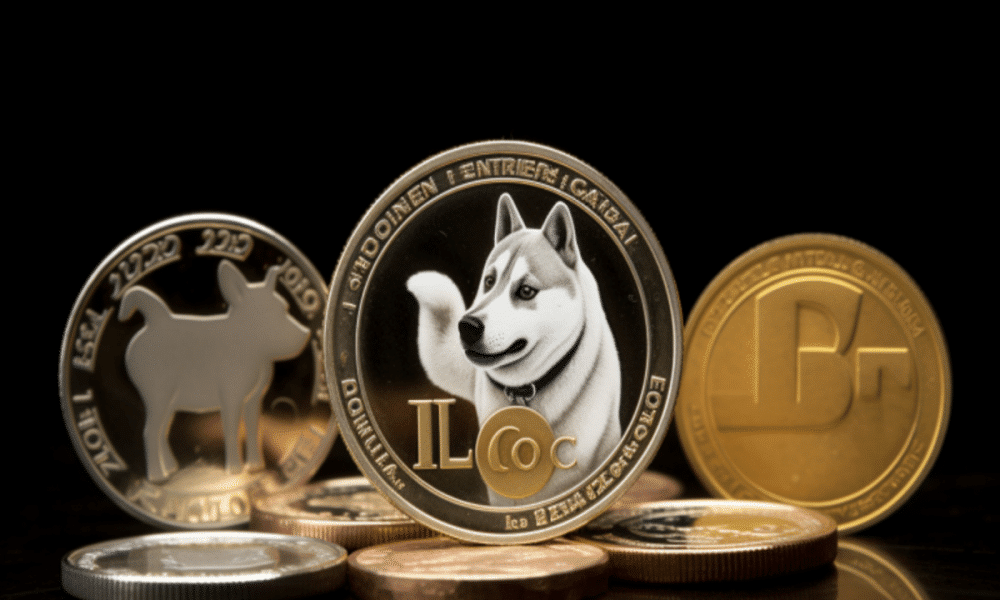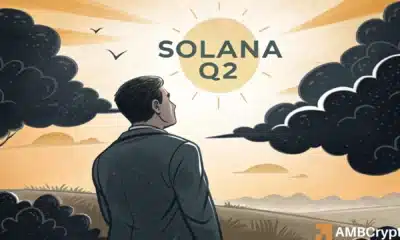Altcoin
DOGE transactions trump BTC and LTC thanks to DRC20, but here’s the catch
The trend of creating fungible token standards has continued with Dogecoin creating its own. The introduction has helped the meme keep Litecoin and Bitcoin pressured.

- Dogecoin transactions surpassed 650,000 on a day some of the older cryptocurrencies lagged behind.
- The hike has caused challenges on the Dogecoin blockchain.
Dogecoin [DOGE] experienced a significant surge in daily transactions, outpacing that of Bitcoin [BTC] and Litecoin [LTC]. Mishaboar, a prominent Dogecoin community member, made the update known on 5 May.
Daily #Dogecoin transactions have skyrocketed to ATH (650k), surpassing #BTC and #LTC transactions today due to folks trying to cram tokens (DRC20 "standard") and other stuff on top of the Dogecoin network.
Many have been rushing to mint these "tokens" over the past two days. pic.twitter.com/Vt60MxX1no
— Mishaboar (@mishaboar) May 15, 2023
How much are 1,10,100 DOGEs worth today?
Following in the footsteps of the oldies
As stated in the tweet above, the introduction and adoption of the DRC20 token standard were responsible for the hike. Recently, Bitcoin experienced a tremendous increase in network activity due to the superb market participation with BRC-20 tokens.
Litecoin, following in a similar path of replicating a “lighter” Bitcoin, also introduced its own LTC20 standard. So, it seems like this is a repeat of Dogecoin creating a “joke” Bitcoin imitation, this time in terms of the experimental fungible token standard.
Interestingly, the creators had dedicated a Twitter page, Doge Labs, to DRC20, aimed at informing other members of the community about the objective. Termed “Doginals”, and inspired by BRC-20, Doge Labs noted that DRC20 had solved the indexer challenges.
An indexer challenge happens when individual transactions get stocks in between different blocks or between transactions in a single block. In addition, the DRC20 involves the process of assigning unique identities, including NFTs to Shibes, the smallest unit of Dogecoin from the first block.
2/ Doginal Indexer ?️: Conquer the @dogecoin block reward randomness. We assign unique IDs to Shibes, the tiniest units of Dogecoin, from block #1, making each one distinct yet value fungible. pic.twitter.com/uAzcclYvOd
— Doge Labs ? drc-20 (@verydogelabs) May 11, 2023
But Santiment’s data showed that the development has not necessarily impacted the NFT sales volume on the Dogecoin blockchain.
Although there have been cases of spikes since 10 May, the volume had dropped to 831,000. This signals a decline in interest in trading Dogecoin-related non-fungible assets.
Watching for the hassles
Unlike the NFT volume, active addresses had a discreet reaction to the DRC20 innovation. Active addresses show the number of wallets involved in sending and receiving assets on a project’s network.
As shown above, the 24-hour active addresses had increased to 129,000. This surge signals that there has been an impressive level of interaction from Dogecoin’s already existing addresses.
However, the recent rush to mint tokens on the network might have created problems for Dogecoin. According to Dogecoin developer Patrick Lodder, there have been issues of clogging on the network.
Read Dogecoin’s [DOGE] Price Prediction 2023-2024
Clogging occurs when a transaction capacity has been used within a block, making it difficult for other transactions to be processed. Based on Blockshibe, Dogecoin’s block analysis platform, the transaction capacity utilized had increased by 11.43%.
While Dogecoin may have surpassed Bitcoin and Litecoin in network activity due to DRC20, its increasing presence is no guarantee of long-term viability. Neither does it indicate the Dogecoin ecosystem will become more well-established than that of the king coin.

